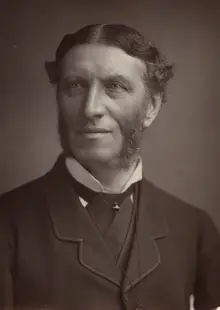
Matthew Arnold
Matthew Arnold was an English poet and cultural critic. He was the son of Thomas Arnold, the headmaster of Rugby School, and brother to both Tom Arnold, literary professor, and William Delafield Arnold, novelist and colonial administrator. He has been characterised as a sage writer, a type of writer who chastises and instructs the reader on contemporary social issues. He was also an inspector of schools for thirty-five years, and supported the concept of state-regulated secondary education.
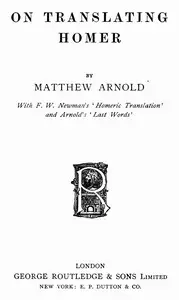
On Translating Homer
Discover the secrets of translating ancient poetry and the art of maintaining tone for a modern audience.
By Matthew Arnold
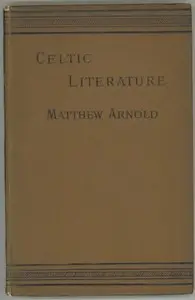
Celtic Literature
Discover a world of ancient bards and cultural clashes as one man seeks to understand the hidden depths of a forgotten literary voice.
By Matthew Arnold
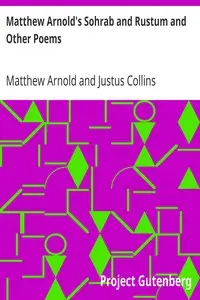
Matthew Arnold's Sohrab and Rustum and Other Poems
In a world of conflict, a tragic poem tells of a hero and his estranged father, encapsulating themes of fate, identity, and the anguish of familial bonds, leading to a monumental battle.
By Matthew Arnold
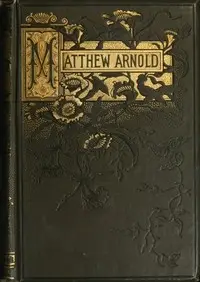
Poems
Experience a world of introspection through eloquent verses that contemplate love, nature, and the trials of the human spirit penned by a lyrical wordsmith.
By Matthew Arnold
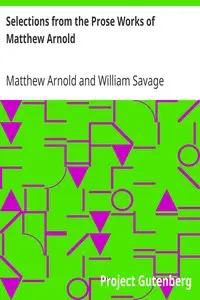
Selections from the Prose Works of Matthew Arnold
Explore the mind of a Victorian thinker as he dissects society and culture, championing the power of art and intellect to elevate humanity.
By Matthew Arnold
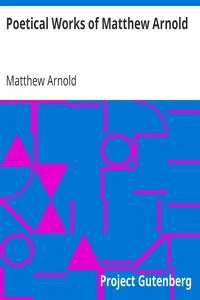
Poetical Works of Matthew Arnold
Explore heartfelt poems that tackle grand questions about life, nature, and love during a time of societal change.
By Matthew Arnold
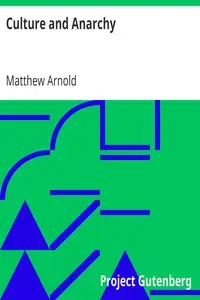
Culture and Anarchy
In a world losing sight of true values, a call for moral and intellectual growth emerges as the path to a better society.
By Matthew Arnold
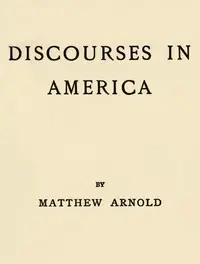
Discourses in America
In a time of political struggle, discover how moral reform and a virtuous minority can redirect society's course.
By Matthew Arnold
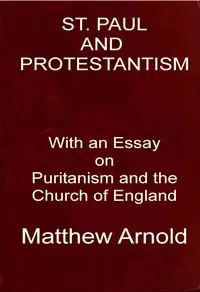
St. Paul and Protestantism, with an Essay on Puritanism and the Church of England
A battle of theological interpretation begins as the teachings of St. Paul are debated within the context of Protestantism, leading to a confrontation with Puritan traditions and the identity of the Church of England.
By Matthew Arnold
